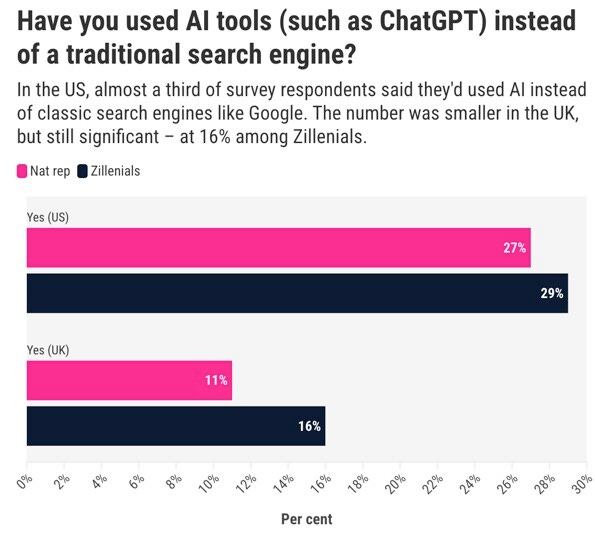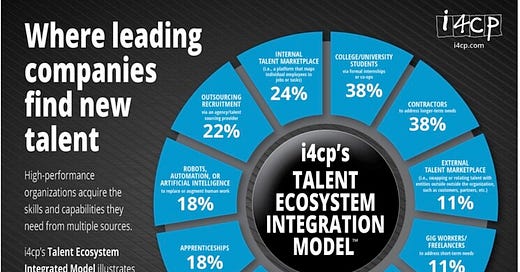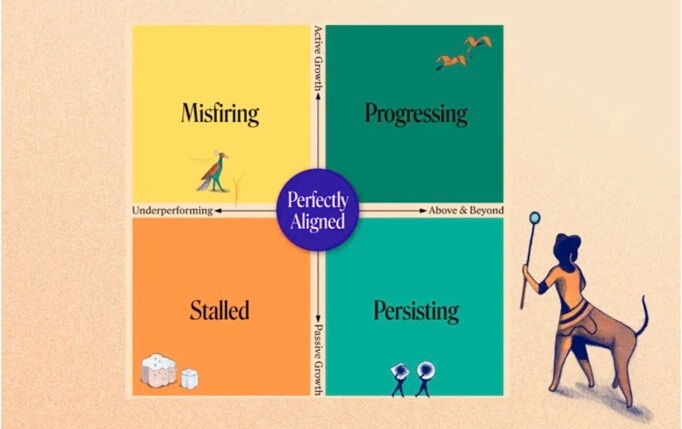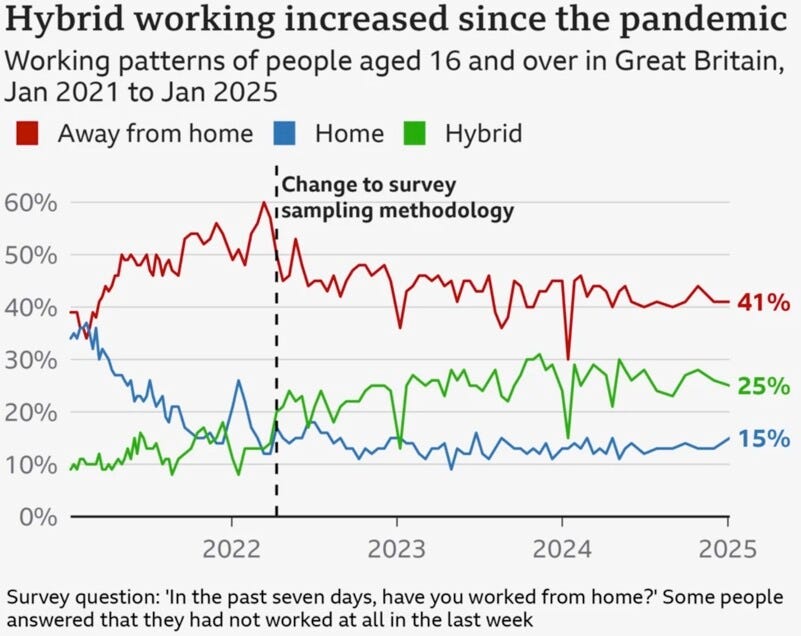SME People Insights : Four converging forces shaping our workplace
Examining practical responses to fluid workforce models, evolving compensation frameworks, homeworking productivity and AI tools impact on workplace culture.
Welcome to a growing community of forward-thinking SME business leaders who are actively reshaping how great work happens in organisations just like yours.
Whilst we can’t prevent complexity buffering our businesses, we can create organisations that can withstand and flourish in the face of any unpredictable change.
This newsletter is for those who simply want to ensure as many SMEs as possible know how to make great workplaces! Please share the SME People Insights Newsletter with those in your network who would find it valuable.
Decentralise or Die
“The old Employment Deal is dead, long live the flexitariat”.
Ok, enough of the morbid headline-grabbing death analogies but SMEs do need to move with the times here. Not just the fact that on the one hand people want to be seen, heard and valued, sprinkled with a large dose of post-pandemic flexibility thrown in for good measure. On the other, we can now unbundle tasks from jobs and have a choice of where these end up, from the utility of the machine to the growing band of freelancers or even the bin, if the task no longer adds value.
I see ‘Just good enough’ SME HR departments struggle with the increasing importance of workforce planning and total talent, given a legacy of order taking into the one-dimensional permanent talent pool. Those managers doing the hiring too often seem bedevilled by old belief systems that perpetuate outdated myths like contractors won’t buy the mission and are disloyal (despite nearly 80% of FTEs looking to move), are prohibitively expensive (despite overlooking the total cost of an FTE when tax, benefits, space and other costs are factored in) or don’t understand the business (despite their external perspectives and skills outweighing the increasingly redundant internal knowledge).
“I could go on, and I probably will” (an ode to the recently departed Rick Buckler), but get beyond this and there’s a world of growing opportunity for SMEs, as follows:
Be intentional about accessing talent, using platforms like Upwork, Fiverr, Toptal and the growing band of specialised marketplaces.
Establish a relationship based on outputs rather than time served.
Build a strong, intentional infrastructure that recognises this trend changes everything, spanning hybrid, asynchronous working, compliance and culture.
As the excellent Andy Spence would say:
“Work is not disappearing—it’s transforming. To thrive, we must reimagine its structures and purposes in a decentralised, digital world”.
There’s your call to action. What’s your plan in 2025?
Performative or Performance? The Q1 conundrum.
Despite four decades of workplace complexity, that unpredictability of humans and markets, we have still retained a fixation for the annual calendar of employee events as an antidote. For many SMEs out there, at this time of the year, this takes the shape of the objective-setting exercise at the beginning of January and a switch to compensation planning at the end of the Quarter.
What actually happens, too often, is a performative mess. A compliance-led execution of objectives, stretching way off into the distance, many without clear outcomes, targets or rigour. A complete avoidance of both complexity or recognition of the sheer messiness of how stuff gets done at work for many of us. Coming at the end of the cycle is a finance-led envelope of structured, repeatable compensation frameworks, leaving SMEs with the problem of bridging a disconnect between these two.
Many SMEs default to ‘across the board’ pay deals that appeal to the “we’re all in this together” ethos, that builds low-conflict, centrally planned, inflation-linked approaches. When boards scratch their heads downstream trying to discover why people aren’t going above and beyond, they realise there is no differentiator or motivator in doing so when it comes to their wallet, or how it impacts the wider chat in the pub with a friend from the industry about relative pay equity.
Clearly, in pursuing great workplaces, I want to encourage more SMEs to create a systematic way of translating subjective performance evaluations into objective compensation decisions, through some thoughtful interventions:
Build a two-dimensional measurement system. One axis for role performance (technical competences and business outcomes), and a second axis for behaviours crucial to company culture (e.g., growth, collaboration, etc).
Create many "faces" of performance evaluation. An associated strong coaching culture, avoiding reducing people to numbers in conversation but being connected to an open compensation algorithm.
Define what good looks like in behaviours and be consistent. Document, open-source and ensure all recommendations are backed up with clear evidence.
SMEs should view performance and compensation as connected but distinct systems. Performative acts do nobody any good but instead require a thoughtful, transparent bridge to ensure both percieved fairness and employee retention.
Let me ChatGPT that for you

It seems that the old market-leading Google monolith, who seen off such illustrious competitors as AltaVista, Yahoo, Ask Jeeves and Bing is now under threat in the face of AI vendors.
According to recent research by TechRadar’s publisher, more than a quarter of people surveyed in the US reported using AI tools instead of a traditional search engines. That number was lower in the UK, but still representative of a significant shift in behaviour, with 16% of our younger workers and rising never likely to “google it” again.
The time-saving, accuracy, ease of use and depth of answer, in how people seek information online, will have growing consequences for SMEs, not just in the SEO-dominated marketing space but also in how we determine our talent landscape.
The skills need is moving quickly from automation and digital literacy to AI-related literacy. Where are you on this spectrum, some 13 years after the big wave of digital transformation? And how do we manage the adjacent rise of higher order skills in the business such as critical evaluation and synthesis or the ability to train and verify AI outcomes? How do followers of the old hierarchical org structure deal with new youngsters, armed with AI, sounding much more informed than they should be given this boost to their own IQ? Will a generational split on this become profound and fractious, based on comfort and adoption levels, creating a two-speed organisation in the process?
The opportunity on offer is having teams work faster with AI rapid insights, greater levels of democratisation inside the business, shifting information gathering to the machine and the rise of the AI digital "colleague" in the workflow, not long after the modern-day Luddites attacked Lattice for the very idea.
No matter how this evolves, and it will, the AI capability remains the NPC in this story, despite its shiny Boston Dynamics allure. This shift should be viewed through the lens of a fundamental change in how employees access, process, and apply information in their daily work, making their jobs and working lives better in the process.
Developing story, keep an eye on how it changes behaviours in the workplace.
No place like home
Interesting to see a literal “home” win in the latest world “placemaking” series that kicked off in earnest post-pandemic, and rages on to this day (and many more ahead).
A recent study has suggested that Remote work doesn't thwart productivity but actually boosts focus. It found Government workers studied were a staggering 12% more productive when randomly assigned to work from home.
As the excellent Adam Grant commented:
“They're more efficient where it's quiet. Most people aren't shirking from home. They're escaping distractions and long commutes”.
The indirect consequences of a rising take up in homeworking will continue to be felt, whether it’s through accusations of hollowing out London (similar cost of living effects in other global cities), women missing out on opportunities, (delivered by a female CEO who wants to single out women rather than the system she presides over), school absences and even insider trading.
The hugely partisan Corporate Real Estate community, reeling from years of unprecedented growth from pension funds seeking a predictable return, has turned to dialling up the very real issue of loneliness to champion the sector’s commitment to bricks and mortar, albeit revising what the offering is rather than accepting that in their battle for “earning the commute”, the home is where the heart remains to a very large extent, with many reasons being beyond their remit of glitzy furnishings and concierge services.
Similar to our relationship with Technology, we tend to overestimate greatly the inanimate qualities of the workspace. Sure, the poor ones, like limiting Tech stacks, can frustrate and repel but people leave managers and poor organisational systems, not stone floors and mood lighting.
“Can the real estate industry become a beacon for positive company culture?”
- Caleb Parker, CEO of Brave Corp.
Not really. Maybe if you like shiny things but this idea that creating environments becomes a beacon is not what culture is and doesn’t get a mention when scrutinised by those asked to explain what it really is. The CRE industry will innovate and evolve. We do need space to come together and it feels less fixed and formal for SMEs, just like the rest of the world of work.
For now. Avoid the noise, get to understand your people and build a decentralising, respectful system that appeals more to the needs of the human brain than their nose, ears and eyes.
Some Final Thoughts
Some of you might be interested in an article I penned for Brightmine and HRZone recently, and available to download: Adapting to change: How HR can manage the UK employment regulation overhaul. I’m doing a follow-up where I aim to speak with senior HR professionals about strategies they are deploying to get ready for this generational change in workplace regulations. Drop me a message if interested in being included.
I was delighted to join Lattice’s certified a, on their latest cohort. Been a big fan of the People platform Lattice for many years and happy to refer them to anyone out there in buying mode. Find out more here and let me know if you want to talk further.
And on the issue of Tech buyers, the good folk at MarketIn-HR are conducting a 5 minute HR Buyer Survey to uncover how HR decision-makers buy, what influences their choices, and what vendors can do better. Responses are confidential and the survey can be found here: https://lnkd.in/e2B3hqyU
I’ve reached issue 3 and still finding my feet but very thankful for those who’ve subscribed, liked, commented and connected. This has given me the energy to feel validated about the essential need to help create better workplaces for the SME sector.
Until next time.
Barry






